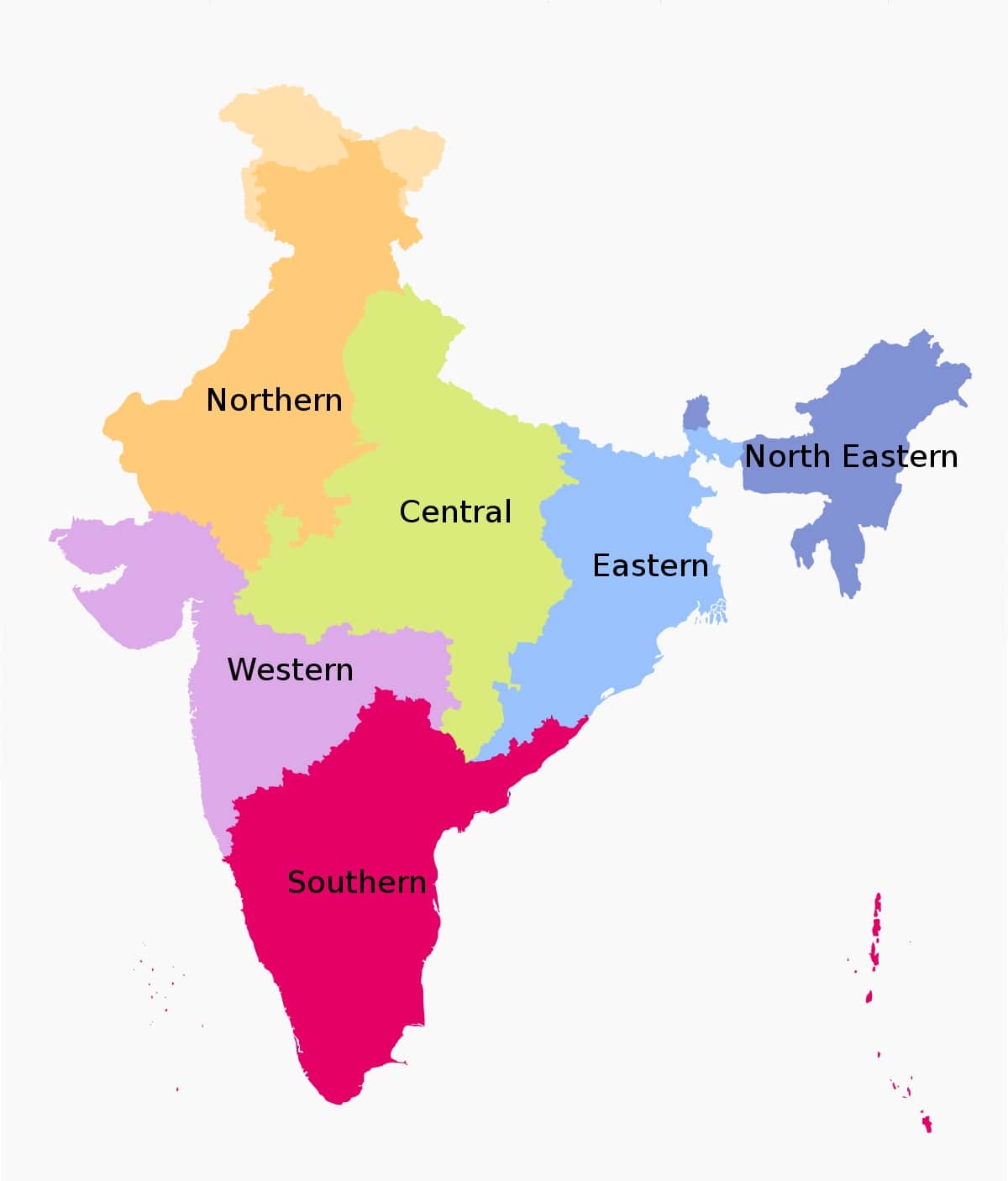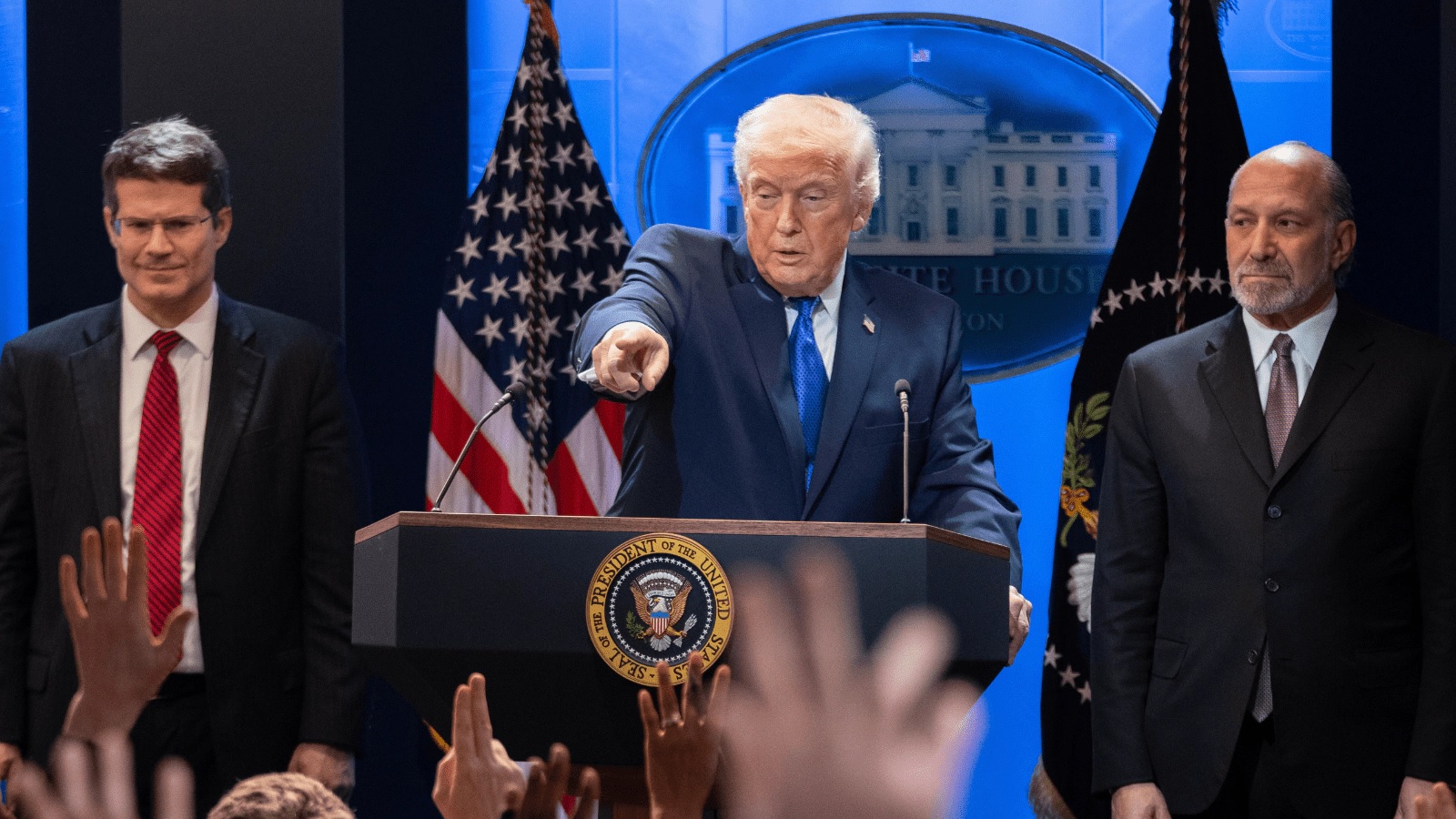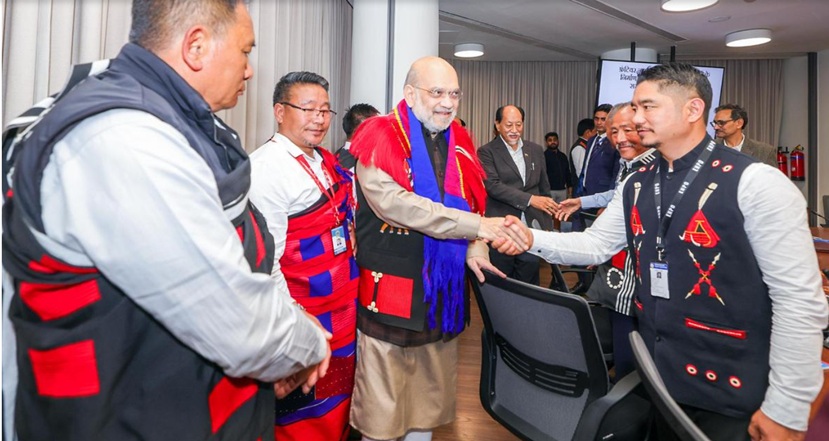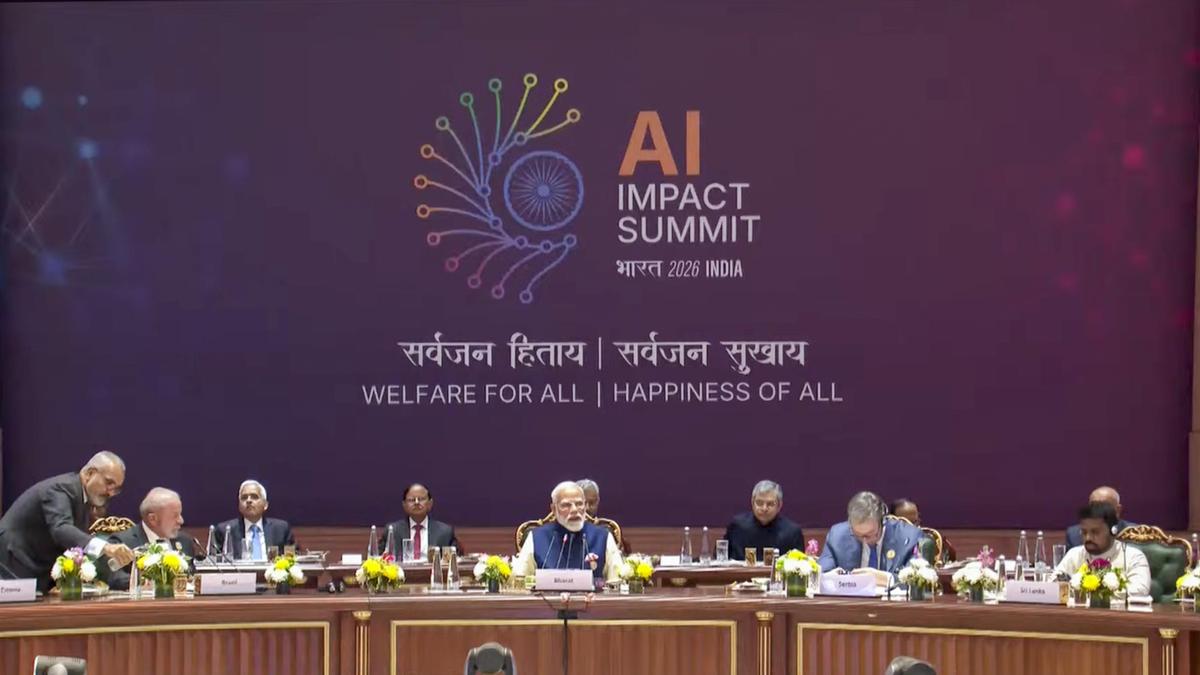What’s in Today’s Article?
- Zonal Council – background, about, objectives, functions etc.
Why in News?
- The 25th Eastern Zonal Council (EZC) meeting, held at Kolkata, was chaired by Union Home Minister Amit Shah.
- Issues like illegal infiltration, trans-border smuggling and the vulnerable India-Bangladesh boundary were among subjects discussed at the meeting.
- In the light of the increase in the operational area of the border force earlier this year, the role of BSF was also discussed.
- In October 2021, the Union govt extended the jurisdiction of BSF from 15 km to 50 km inside the international border along Punjab, West Bengal and Assam.
- This was opposed by the West Bengal govt.
Background of Zonal Council
- The idea of creation of Zonal Councils was mooted by the first PM Nehru in 1956.
- This was suggested during the course of debate on the report of the States Re-organisation Commission
- It was suggested that a high-level advisory forum should be set up:
- to minimise the impact of linguistic hostilities prevailed at that time;
- to create healthy inter-State and Centre-State environment.
About Zonal Council
- In the light of the idea promoted by the then PM Nehru, five Zonal Councils were set up under the States Re-organisation Act, 1956.
- Zonal Councils are the statutory and not the constitutional bodies.
- The five councils are:
- The Northern Zonal Council; The Central Zonal Council; The Eastern Zonal Council; The Western Zonal Council; The Southern Zonal Council.
- The North Eastern States are not included in the Zonal Councils.
- Their special problems are looked after by the North Eastern Council, set up under the North Eastern Council Act, 1972.
What are the objectives of zonal council?
- The main objectives of setting up of Zonal Councils are as under:
- Bringing out national integration;
- Arresting the growth of acute State consciousness, regionalism, linguistic and particularistic tendencies;
- Enabling the Centre and the States to co-operate and exchange ideas and experiences;
- Establishing a climate of co-operation amongst the States for successful and speedy execution of development projects.
What is the organisational structure of the zonal councils?
- Chairman
- The Union Home Minister is the Chairman of each of these Councils.
- Vice Chairman
- The Chief Ministers of the States included in each zone act as Vice-Chairman of the Zonal Council for that zone by rotation, each holding office for a period of one year at a time.
- Members
- Chief Minister and two other Ministers as nominated by the Governor from each of the States and two members from Union Territories included in the zone.
- Advisers
- One person nominated by the Planning Commission (now NITI Aayog) for each of the Zonal Councils,
- Chief Secretaries and another officer/Development Commissioner nominated by each of the States included in the Zone
- Union Ministers are also invited to participate in the meetings of Zonal Councils depending upon necessity.
What are the functions of zonal council?
- Each Zonal Council is an advisory body and may discuss any matter in which some or all of the States represented in that Council have a common interest.
- It may advise the Central Government and the Government of each State concerned upon the action to be taken on any such matter.
- In particular, a Zonal Council may discuss, and make recommendations with regard to:
- any matter of common interest in the field of economic and social planning;
- any matter concerning border disputes, linguistic minorities or inter-State transport;
- any matter connected with or arising out of, the re-organization of the States under the States Reorganisation Act.
How this council is different from other platforms promoting cooperative federalism?
- There are a large number of other platforms which works on the principle of promoting cooperative federalism.
- Eg., National Development Council, Inter State Council, Governor’s/Chief Minister’s Conferences and other periodical high-level conferences.
- However, the Zonal Councils are different, both in content and character.
- They are regional fora of cooperative endeavour for States linked with each other economically, politically and culturally.
- Being compact high-level bodies, specially meant for looking after the interests of respective zones, they are capable of focusing attention on specific issues taking into account regional factors, while keeping the national perspective in view.
Q1) What is the zonal council?
Zonal Council is an advisory council set up to minimise the impact of hostilities and to create a healthy inter-State and Centre-State environment with a view to solving inter-State problems and fostering balanced socio-economic development of the respective zones.
Q2) Who is the head of the zonal council?
The Union Home Minister is the head of each of the Councils with the Chief Ministers of the States included in each zone acting as Vice-Chairman of the Zonal Council for that zone by rotation, each holding office for a period of one year at a time.
Source: Northern Zonal Council discusses security, water sharing
Last updated on February, 2026
→ UPSC Notification 2026 is now out on the official website at upsconline.nic.in.
→ UPSC IFoS Notification 2026 is now out on the official website at upsconline.nic.in.
→ UPSC Calendar 2026 has been released.
→ UPSC Final Result 2025 is expected to be released in the second week of April 2026.
→ Check out the latest UPSC Syllabus 2026 here.
→ Join Vajiram & Ravi’s Interview Guidance Programme for expert help to crack your final UPSC stage.
→ UPSC Mains Result 2025 is now out.
→ UPSC Prelims 2026 will be conducted on 24th May, 2026 & UPSC Mains 2026 will be conducted on 21st August 2026.
→ The UPSC Selection Process is of 3 stages-Prelims, Mains and Interview.
→ Prepare effectively with Vajiram & Ravi’s UPSC Prelims Test Series 2026 featuring full-length mock tests, detailed solutions, and performance analysis.
→ Enroll in Vajiram & Ravi’s UPSC Mains Test Series 2026 for structured answer writing practice, expert evaluation, and exam-oriented feedback.
→ Join Vajiram & Ravi’s Best UPSC Mentorship Program for personalized guidance, strategy planning, and one-to-one support from experienced mentors.
→ Check UPSC Marksheet 2024 Here.
→ UPSC Toppers List 2024 is released now. Shakti Dubey is UPSC AIR 1 2024 Topper.
→ Also check Best UPSC Coaching in India




















